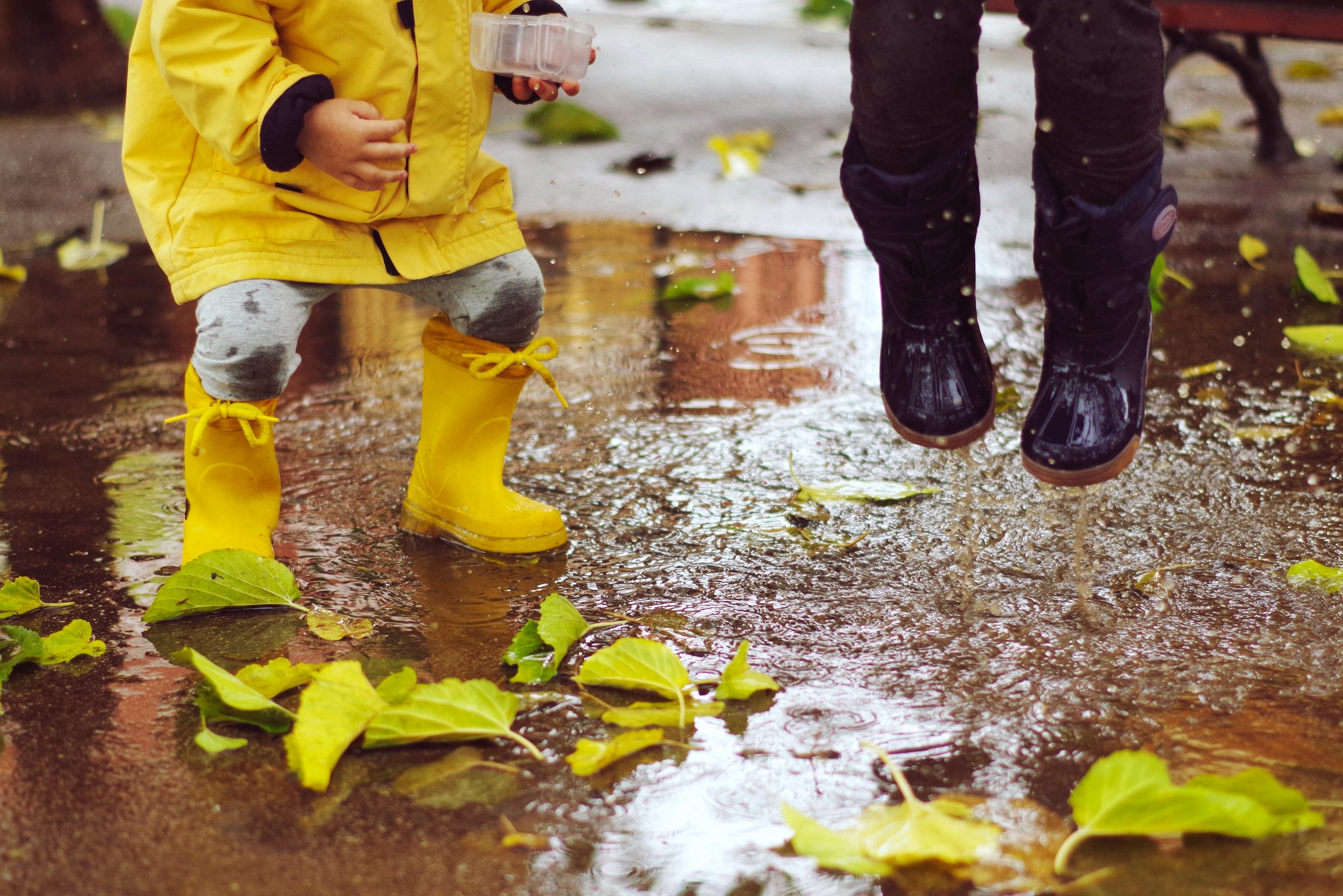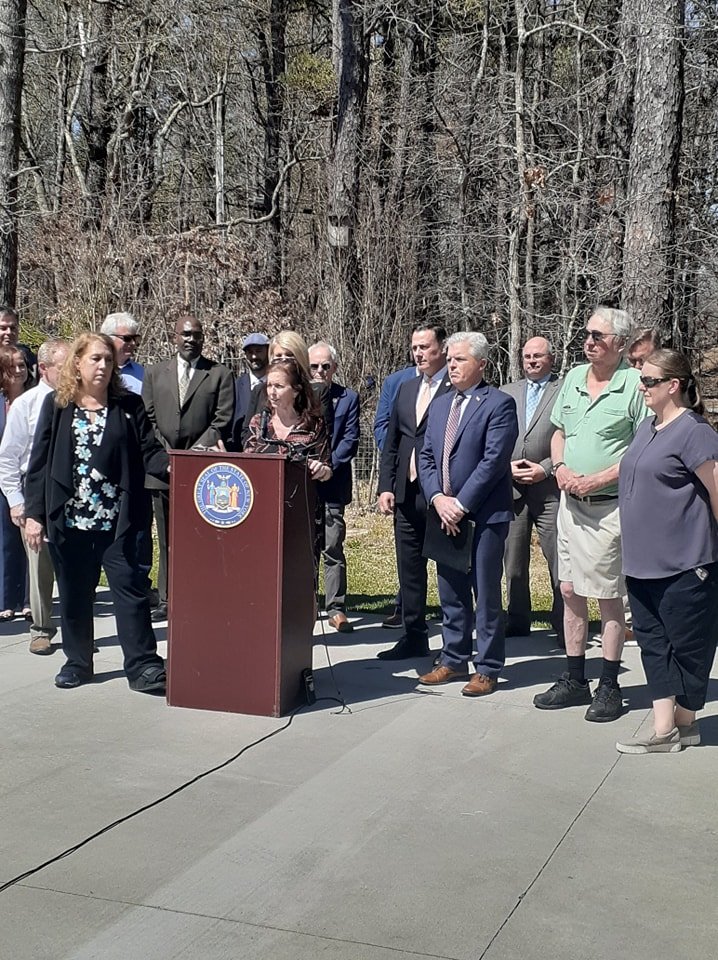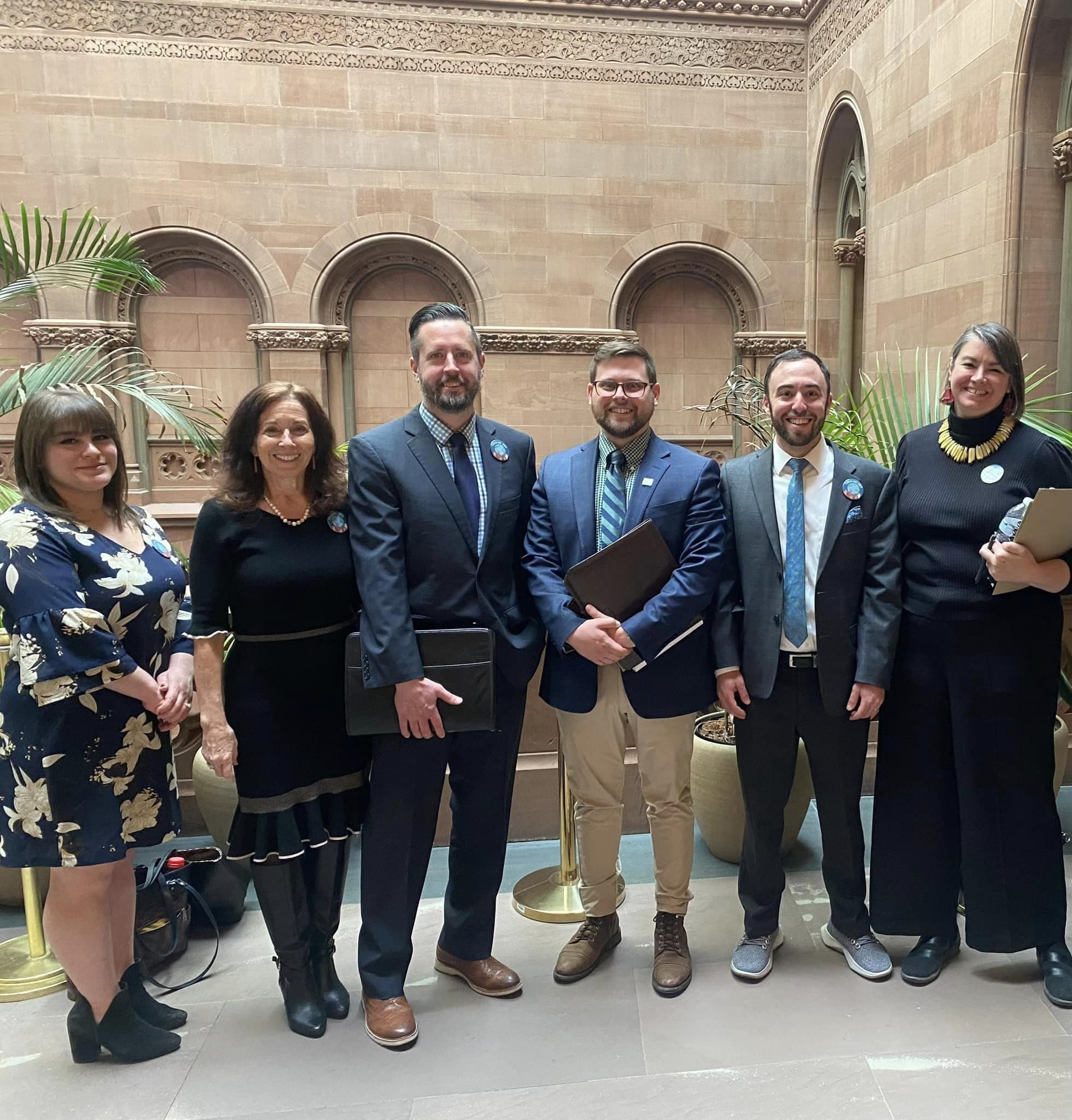Help CCE build on our success, and support our campaigns to protect public health and the environment in NY and CT.
Make a contribution today.
Highlights
Victory! NYS Final Budget has Big Gains for the Environment
The final NYS budget includes funding for critical programs to restore our waterways, fight climate change, and protect public health. A huge thank you to Governor Kathy Hochul and our Senate and Assembly champions for fighting for crucial environmental victories this year. Highlights include:
$500 million for clean water infrastructure, which helps to stop sewage overflows, remove emerging contaminants from drinking water, and more;
$400 million Environmental Protection Fund, which supports environmental programs to protect our land, air, and water in every community across the state;
$22.5 million to protect and restore our Ocean, Estuaries, and Great Lakes;
A record $2 million to support restoration of the South Shore Estuary Reserve; and
Authorization for Suffolk County to create a unified water district and hold a clean water ballot referendum this November.
NYS Assembly Passes Birds and Bees Protection Act!
One of our key priorities in Albany this year is the Birds and Bees Protection Act. This bill would limit unnecessary uses of toxic neonicotinoid pesticides (A.K.A neonics), which have decimated bee populations, polluted drinking water, and have been linked to adverse human health impacts. In April, the NYS Assembly passed this legislation to ban the sale of neonic treated corn, soybean, and wheat seeds; and cosmetic uses on lawns, gardens, and golf courses. By banning just these few uses, we could eliminate 85-90% of all neonics used in NY. A big thank you to Assemblywoman Glick for your leadership! Now, we are working to ensure the NYS Senate also passes this crucial bill this year.
Victory! Manorville Residents Will Get Clean Water
We were thrilled to join Manorville residents on Long Island for a celebration last month to announce there is now full funding to connect 64 homes to public water. These residents are drinking from private wells contaminated with toxic PFAS chemicals and VOCs and have been demanding #cleanwaternow for the last four years. Thank you to our local, state, and federal policy makers who got this critical funding, and most of all, thank you to the residents who never stopped fighting!
Happenings
Celebrating Earth Day 2023
To celebrate Earth Day, we joined advocates from across New York to voice our support for a comprehensive legislative agenda to protect our water, land, and pollinators; improve recycling, reduce toxins, and fight climate change. We had a very productive time in Albany and were successful in passing several important bills through the Assembly and Senate, which protect pollinators, reduce PFAS pollution, reduce food waste, and much more. A huge thank you to everyone involved in a great Earth Day Advocacy Day.
Fighting to hold manufacturers—not taxpayers—responsible for their waste
One of our top NYS priorities this year is working to pass the Packaging Reduction and Recycling Act, which will hold producers, not taxpayers, responsible for their waste. We have been fighting for a strong policy that will reduce product packaging, eliminate toxins in packaging, increase packaging recyclability, prevent plastic pollution, and save taxpayers money—it is estimated the policy would save local governments across the state $420 million annually! We will continue to fight to pass this critical legislation this year and urge you to take action in support.
Transitioning to Offshore Wind
New York is poised to be a national leader in offshore wind, with five wind farms already selected and a mandate of 9,000 MW of offshore wind by 2035. This will not only bring environmental and health benefits to our communities but will also create thousands of jobs and make NY a hub of offshore wind development. Recent updates on our offshore wind work:
Open Houses on Empire Wind 2. Equinor is hosting meetings on Empire Wind 2, which will power over 600,000 homes in Nassau County via a cable connection to Island Park. We just attended the meeting in Island Park but there will be another in Long Beach on June 8, we’d love to see you there. Find more information and register here.
Talking Offshore Wind with Uniondale High School. We recently kicked off our partnership with Community Offshore Wind and Uniondale High School, with more than 800 students slated to participate. We will be in classrooms for several days talking with students about “Transitioning to Renewable Energy” - an educational program designed to inform and engage the next generation of Long Islanders on the clean energy future.
Understanding the Health Risks of 1,4-Dioxane on Long Island
Yale Superfund Research Center has crafted a study to better understand the impact of 1,4-dioxane exposure on Long Island residents. This spring, we launched our partnership with Yale to provide education and outreach to inform Long Islanders about this new, exciting program. In April, we hosted a Lunch and Learn with Yale to talk about:
The latest science on drinking water and health impacts of 1,4-dioxane
More information on the large quantities of 1,4-dioxane in popular products
The new partnership between Yale and CCE and the health study to begin this year for Long Islanders.
If you live on Long Island and are interested in participating in the study and finding out if you or the drinking water in your home have been exposed to 1,4-dioxane, you can find out more here.
Whale Tales and Whale Facts
We had a great Lunch and Learn virtual webinar on the recent whale deaths off NY’s coast and discussed what we can do to protect whales. There has been concern that these whale deaths are the result of offshore wind development, despite evidence to the contrary. The truth is that offshore wind is crucial to fighting climate change and protecting marine species. We heard great presentations from the US Bureau of Ocean Energy Management, NYS Dept. of Environmental Conservation, and Atlantic Marine Conservation Society about the real threats to whales off our coast. Thank you to the almost 400 people who joined and all who participated in the Q&A. If you missed it, check it out here.






